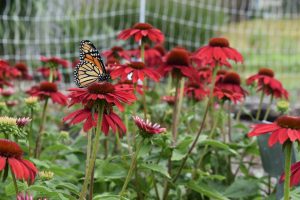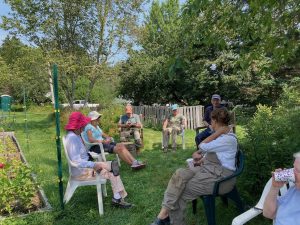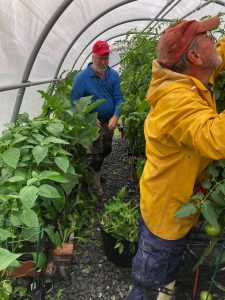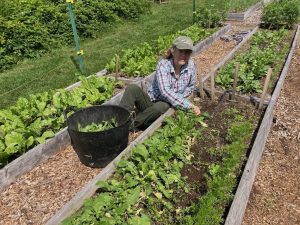Hancock and Washington Counties Master Gardener Volunteers News – February 2022
Table of Contents
Certifications|Plant Sale/Open House | Statewide MGV Lunch & Learn |ADV MGV Trainings |Garden Mentor| Sustainable Gardening ZOOM | Project Highlight| MGV Profile |Wellness Month| Winter Reading| Reporting Hours
Upcoming Dates to Remember
February 7: Extending the Gardening Season in New England – Webinar
February 15: Taking Sustainable Gardening to the Next Level / Blue Hill Native Gardens -MGV Lunch & Learn
February 16: Garden Mentor Info Session
February 21: President’s Day – office closed
February 22: Risky Business: Keeping Food Safe for Home Gardens, Community Projects and Gleaning
March 3: Gardening for Birds – MGV Lunch and Learn Series
March 9, 16 & 23: Climate Change for Gardeners
March/April: Self-Wellness workshops Dates TBD
April 18: Patriot’s Day – office closed
May 21: MGV Plant Sale & Open House
June 27: FLASH in the Pans Steel Drum Band Fundraiser
COVID Protocols
We will keep you updated on any future Covid Safety protocol changes. Watch your emails. Thank you all for being so patient and cooperative!
MGV CERTIFICATIONS
Congratulations and thank you to twenty-six newly certified Hancock and Washington County Master Gardener Volunteers! These folks all completed their first 40+ hours of volunteering while weathering the challenges of the pandemic. We look forward to continuing to grow with you!
Class of 2021
|
|
Class of 2020
|
|
Class of 2019
|
|
Several more members of the classes of 2020 and 2021 are working on their volunteer hours and we hope to certify them in 2022:
|
|
THANK YOU to the following Master Gardener Advisory Committee members who just completed their terms. We are grateful for your leadership and commitment to strengthening our MGV program!
- Cindy Blake of Blue Hill
- Rita Buddemeyer of Hancock
- Mary Doherty of Ellsworth
- Linda Dunn of Trenton
- Mary Hartley of Blue Hill
- Wendy Lessard of Ellsworth
- Jessica Marks of Trenton
2022 Spring Plant Sale and Outdoor Open House Scheduled: Saturday May 21
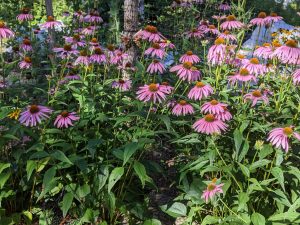
It’s been three years since we’ve been able to hold our traditional MGV plant sale and open house. This is our main fundraiser to support projects and scholarships for students, AND it is our chance to showcase our MGV program to the public. Plans are in the making for the event this year, on Saturday morning, May 21. Will you join the group and pitch in? There are so many different ways you might contribute. Please consider:
- Do you have (or know of someone who has) divisions from your perennial garden that you can contribute?
- Would you enjoy digging, dividing and potting perennials at the Extension Office?
- Would you like to grow some annual veggies or flowers to contribute to the sale?
- Would you like to help us set up for the sale and outdoor workshops? (nothing will be done inside the building this year)
- Would you like to help with customer service on the day of the sale? (All MGVs will be asked to wear masks this year as an extra precaution).
- Would you enjoy giving a public demonstration/talk on the day of the sale?
- How about helping with a kids’ activity table?
If you haven’t signed up to help with the Plant Sale/Outdoor Open House yet, please think about how you might help, and send an email to Marjorie at marjorie.peronto@maine.edu.
THANK YOU!
Statewide MGV Lunch and Learn Series – delivered by and for MGV’s
Beat the winter blues by tuning in for special monthly presentations by fellow Master Gardener Volunteers from across the state! This Statewide Lunch and Learn Series will take place on the first Thursday of each month, now thru April 2022.
No registration required!
Open only to Master Gardener Volunteers.
Please use the same Zoom information listed below for each webinar you attend:
Join from PC, Mac, Linux, iOS or Android: https://maine.zoom.us/j/82551078918?pwd=REVOenZwSWtxdkxOdlE2c3ZQL3FuUT09
Password: 093872 / Meeting ID: 825 5107 8918
Or Telephone: US: +1 301 715 8592
Upcoming Lunch and Learns
Gardening for Birds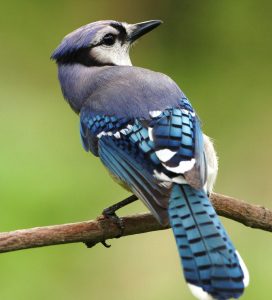
Thursday, March 3, 2022, Noon – 1pm
Join Knox-Lincoln County MGV (Class of 2017) and Wildlife Biologist, Gail Presley, for a presentation on how to enhance wildlife habitat in your gardens to attract birds. She started birding in college, and gardening soon after. Her most recent Master Gardener project involved creating a pollinator garden at the Langlais Sculpture Preserve in Cushing. She serves on the Board of Mid-Coast Audubon, and always makes time for birding wherever she wanders. Gardening for Birds will help home gardeners learn about what birds need in their habitat, and how to assess your property and plan for meeting those needs. You’ll receive guidance on what plants to choose, and suggestions for adjusting your practices to attract more birds to your yard.
Lunch and Learn Archives: Did you miss a past Lunch and Learn? – Find Recordings Here!
Advanced MGV Training Opportunities
Join Master Gardener Volunteers from across the state for advanced training opportunities! These sessions, presented by subject matter experts, will take a more in-depth look at horticulture related topics. Open to actively enrolled Maine Master Gardener Volunteers only.
Risky Business: Keeping Food Safe for Home Gardens, Community Projects and Gleaning
Tuesday, February 22, 6:00 PM – 7:15 PM
The program fee is on a sliding scale ($0-$20). Learn more and register online here (password: ladybug). Participants will receive the Zoom information after registering for this event.
Climate Change for Gardeners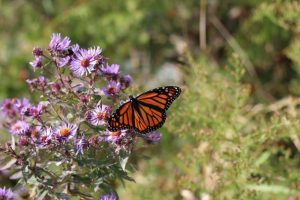
Wednesday, March 9, 16 & 23, 12:00 – 1:15 PM
The program fee is on a sliding scale ($0-$20). Learn more and register online here (password: ladybug). Participants will receive the Zoom information after registering for this event.
March 9: Session 1, Climate Change Science 101
We’ll learn the basics of climate change science, what this means for Maine, our gardens and our ecosystem.
March 16: Session 2, What You Can Do In Your Own Garden
We’ll learn about the difference between climate change mitigation and adaptation and discuss strategies you can adopt for both in your home garden.
March 23: Session 3, What You Can Do In Your Community
We’ll learn about and practice strategies to communicate and educate our communities about addressing climate change in Maine.
Garden Mentor Info Session for MGVs
Wednesday, February 16, 2022, 5:30 – 6:30 PM
Join from PC, Mac, Linux, iOS or Android: https://maine.zoom.us/j/82220609132
Telephone: US: +1 312 626 6799 or +1 646 876 9923
Meeting ID: 822 2060 9132
Come learn about the virtual garden mentor program from fellow volunteers and staff! Mentoring is a great way to earn MGV hours and connect with fellow gardeners. The goal of the Garden Mentorship Program is to match Master Gardener Volunteers with gardeners in their county (or a nearby county) in order to provide virtual technical assistance and encouragement throughout the season.
Agenda:
- What is the garden mentor program?
- How to become a mentor
- Mentoring tips
- Potential mentor training topics
There’s still time to register for:
Taking Sustainable Gardening to the Next Level
In this presentation we will cover gardening practices that will make your garden a better place for you and your family as well as the rest of life that calls your garden home. We will cover ways of fine tuning your garden practices to the landscape, working toward a closed loop system of gardening and developing an appreciation for the soil microbiome. We will share ideas and resources for working more closely with nature with a focus on ornamental and natural gardening.
Avy Claire and Cathy Rees, co-founders of Native Gardens of Blue Hill, will offer insights as Marjorie hosts the Zoom session on Tuesday, February 15th from noon-1:00 PM. Be sure to e-mail sue.baez@maine.edu to register and get the link to the workshop.
Project Highlight
SWEET HAVEN FARM HARVEST FOR HUNGER
Project Leaders: Eva Eicher and Dorcas Corrow
The Sweet Haven Farm Harvest for Hunger Project was originally located in a small church yard located on Mount Desert in Southwest Harbor, Maine. The project was so successful and feedback from the recipients was so enthusiastic that the decision was made to relocate the project to a site that allowed expansion and the ability to serve more people. In 2011 the project moved to a former farm site in Seal Cove, Maine. The relocation allowed the addition of 80 raised beds, increased the size of the open garden areas, and provided space for the addition of three hoop houses containing 85 Earth boxes.
In the last few years, the project has distributed over 2,000 pounds of organically grown produce annually to Low Income Housing sites, two in Bar Harbor and one in Southwest Harbor, and to The Common Good Soup Kitchen in Southwest Harbor. In addition to what is grown at Sweet Haven, volunteers and neighbors donate produce from their gardens.
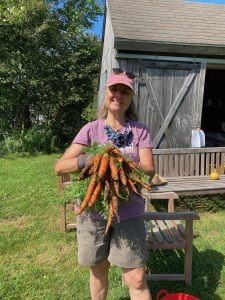
The growing season begins in late February/early March when various onion, leeks and broccoli varieties are started indoors under grow lights. When these are of sufficient size, they are moved to hoop houses and cold frames to allow further growth. As plants are removed from inside, now space is available to start other vegetables, such as winter and summer squash, parsley, and various lettuces as well as cabbages, tomatoes, peppers and eggplants. The plants are started at appropriate times depending on when they will to be planted outside. In early April broccoli seedlings and some lettuce seedlings are planted into Earth Boxes located in one of the Hoop Houses. In late April the onions and leek seedlings are planted into raised beds even if snow is still evident on the ground. By June the broccoli and lettuce have been harvested and distributed. Now the focus turns to preparing the soil in the raised beds and open garden spaces to receive the plants that will be harvested in summer and fall. In addition, the Earth Boxes are prepared to receive seedlings.
In June and on into August and sometime even into early September summer/fall crops are directly planted. These includes corn, potatoes, carrots, beets, string beans, sugar snap peas, radish, spinach, chard, and some lettuce. Other crops, including tomatoes, peppers, and eggplants, are transplanted into Earth Boxes located in the three hoop houses, one of which was previously used to grew broccoli. Other plants that were started under indoor grow lights, like winter and summer squash, are transplanted into open garden spaces. By mid/July the raised beds, open garden areas, and hoop houses are filled with vegetable plants.
An important aspect of the project includes providing quality compost for successful vegetable production. All garden refuse, except for diseased plant material, is added to the compost piles. Two volunteers devote time and effort to adding material to the compose piles, turning the piles, and distributing finished compost to the gardens. Between 3 – 4 yards of compost are produced each year.
More than 20 volunteers contribute their time and energy to making this project successful. Each week Master Garden volunteers together with community volunteers spend four or more hours on site. They prepare raised beds and open garden areas for planting. They plant seeds and seedlings, weed, lay out the water hoses, water Earth Boxes, hand water when necessary, and harvest and deliver produce. Each weekend a volunteer waters the Earth Boxes. There are other volunteers who do not partake in the growing of vegetables, but who contribute wood chips for the paths between the raised beds, donate leaves, or grass clippings and or seaweed for the compose piles. Another volunteer provides quart and pint sized boxes that are used to distribute potatoes and tomatoes.
This project also is important to the Master Garden Volunteer program in that it trains new volunteers from the recent Master Garden Volunteer class to use organic vegetable producing techniques and succession planting. In some cases, these new volunteers decide to continue with this project.
And finally, it is worth noting that something special happens during tea breaks. It is the time when the volunteers sit together and exchange stories. This is when friendships are formed.
- Break time!
- MGV’s Jeff Milliken and Steve Keiser
- MGV Mary Ellen Gellerstedt
MGV Profile
TERRY VAN PRAET -MGV class of 2021
I have been gardening since I was 5 years old, so 50 years now. I remember how proud I was when my mom used my tomatoes and green onions to make dinner. (That’s all I grew in that first year. Although I couldn’t remember the word “onions” and just called them “green things.”)
I even had a garden while I was at college. I convinced my landlord (in two different locations) to allow me a small plot in the backyard. After I graduated and was living in apartments, I joined local community gardens which allowed me to continue to garden even though I owned no land upon which to do it.
I mostly grew annual vegetables until I bought a house, then I moved into “edible landscaping” as I called it. (I had never heard of a food forest or permaculture then.) I grew raspberries, rhubarb, apples, pears, strawberries, and grapes. My children enjoyed browsing all summer, eating whatever was ripe at the time.
I also became interested in creating gardens for pollinators, so I researched and planted for bees, butterflies, praying mantis, and ladybugs.
I had some challenging areas to plant and became familiar with trees that give off allelopathic toxins and how to deal with that.
In my classroom (gifted education grades 3 through 8), my students learned about threats to pollinators from a curriculum I wrote and published, Mystery at Golden Ridge Farm (still for sale on Amazon!). As a group, we designed garden spaces, propagated and planted seedlings, and maintained pollinator and vegetable gardens.
Personally, I tend to try something new every year. During the last year at our house in Pennsylvania, I worked at expanding my knowledge of propagating vegetable seedlings indoors from heirloom seeds, growing in container gardens, and developing a melon patch (while trying to keep the deer out).
After I retired from teaching and decided to move to Maine, I figured it would be a great time to learn more about the specific ecology of Maine and the requirements for successfully growing plants in a more northern climate. Hence my application to the Master Gardener Volunteers program.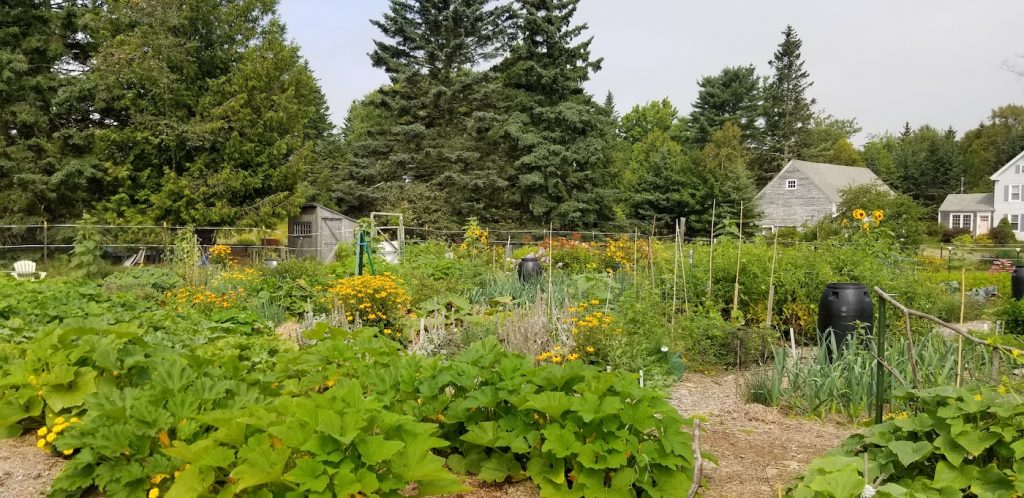
Most of my volunteer work with MGV this summer took me to Hancock Community Garden. I worked with a mentor to provide fresh produce for a local food pantry through the Harvest for Hunger initiative and learned more about how to successfully propagate carrots and parsnips, the latter of which I had never grown. Working alongside a dedicated gardener was definitely a balm to my pandemic-rattled soul. Gardening, in general, had always helped me deal with stress, having that outlet during a pandemic that much more so. I know I’m not alone in that; it seems the entire nation has awakened to the human/nature connection provided by gardening and spending time outdoors. Gardening seems to have allowed many people to take a measure of control in their lives regarding food security especially during such insecure times.
Regarding the question of how my involvement with the Master Gardener program has impacted my home garden, I really want to talk about how it has affected my community. There are two initiatives I am currently working on.
In conversation with the director at my local library, I mentioned I was in the Master Gardener Volunteer program. She asked me if I had any interest in developing a seed lending library. I had read about seed libraries, but had never used or visited one. Yet, from my work at the Hancock Community Garden and through coursework through the Master Gardener Volunteer program, I knew that food insecurity is a huge issue. I jumped at the opportunity to provide free seeds, educational materials, and workshops to those interested in becoming more self-reliant in growing their own food. To that end, I created Bucksprouts Seed Lending Library at Buck Memorial Library in Bucksport.
I started writing to seed companies asking for donations and finally got a response from High Mowing Seed Company who sent us tens of thousands of seeds spanning 102 varieties of vegetables and flowers. With a group of volunteers, I am almost finished repackaging these seeds into smaller envelopes for patrons to “check out”. I plan on having two orientation classes in March to introduce the concept of a seed lending library to the public and start “checking out” seeds for patrons to grow in their own gardens.
Additionally, I am working with a group to create and promote a community garden, Bucksport Community Garden. I just presented our proposal to the Infrastructure Committee this week. We received a positive response and the town manager is currently looking into land that can be used for this endeavor. If all works out, we could potentially be breaking ground this spring. The proposed garden plan allows space for educational gardens which will be used to demonstrate seed saving methods, as well as other topics and issues surrounding gardening success.
Anybody interested in assisting with these two community projects is welcome to contact me at tmvanpraet@gmail.com or bucklibrary.org.
Coming up!
Spring Self-Care / Wellness Sessions
Self care classes to help us rejuvenate from winter and prep for our growing season is on for ‘22. We’ll start in late March. So keep an eye out for the March newsletter with dates, course descriptions, and how to register. Currently we have: Tai Chi for MGVs, Improving Balance to Decrease the Chance of Falls, and Chair Yoga. For MGVs, by MGVs. To our health! More info to come!
Winter Reading
Roots and Shoots
While dreaming, hoping, and preparing to put our best MGV lessons about roots and shoots to good use, it’s nice to take a bit of winter time for reading. If you’ve not yet been stirred to action by The Book of Hope by Jane Goodall and Douglas Abrams (Celadon Books, 2021), consider checking it out. Dr. Goodall offers great reasons especially during troubling times for us to not only feel hope, but also compelling cause to act on it along with practical ways to apply ourselves and engage others.
Inspiring in ways that only the most inspired can be, she uses her gift to reach minds and touch hearts with accounts of experience that support her mission and enlist our engagement. “Only if we understand can we care. Only if we care will we help. Only if we help shall all be saved,” sums up the message that Jane offers her worldwide audience about global concerns.
Of special interest to MGV’s may be the significant widespread accomplishments of Goodall’s Roots and Shoots program. Check at https://www.rootsandshoots.org to learn how hopefulness is playing out in the lives of youth and those they touch. Listen carefully, and hear their chant: “Together we can. Together we will.” Corresponds well w/what MGV’s might sing as we garden, doesn’t it?
Shout out to all MGVs!
Know an MGV who’s done or is doing something intriguing or inspiring? Send in their name to MGVnewsletterinput@gmail.com; someone on the Newsletter team can follow up for a future newsletter spot. We know there are so many neat stories out there or MGVs finding ways to apply our training and experience.
Please be reminded to REPORT your Master Gardener Volunteer hours monthly
Volunteer Hours are due NOW – REPORT HERE
This month’s newsletter sent by Sue includes articles from our new “Communicate with MGV’s” task force. We’d like the next edition to feature your suggestions and articles about gardeners and gardens. Please contact us at MGVnewsletterinput@gmail.com with your ideas as we work on ways for us to stay in touch with all our gardening friends while following virus-safe guidelines.

